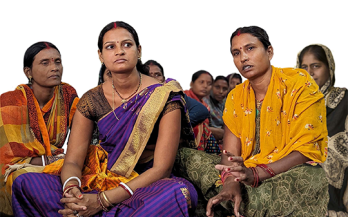
2 November 2024 | The Nation

2 November 2024 | The Nation

1 November 2024 | The International News
Event highlights innovation, policy for advancing right to food

31 October 2024 | WN.com
Innovation, policy for advancing right to food highlighted in World Food Day event

31 October 2024 | UrduPoint
Innovation, Policy For Advancing Right To Food Highlighted In World Food Day Event

30 October 2024 | NEWAGE

30 October 2024 | BSS NEWS

28 October 2024 | HAPPIEST HEALTH
Over half of global population has inadequate micronutrient intake

- 30/10/2024
Poverty and malnutrition are critical challenges in Bihar. Malnutrition is a persistent challenge in Bihar, India – a state that, despite significant progress in recent years, still lag behind the national average in key nutrition indicators. Rates of malnutrition in Bihar are among the highest in the country.
23 October 2024 | Milling Middle East and Africa

11 October 2024 | Business Radar
DISH 2024 Competition Launched to Address Kenya’s Malnutrition Crisis Through Dietary Shifts